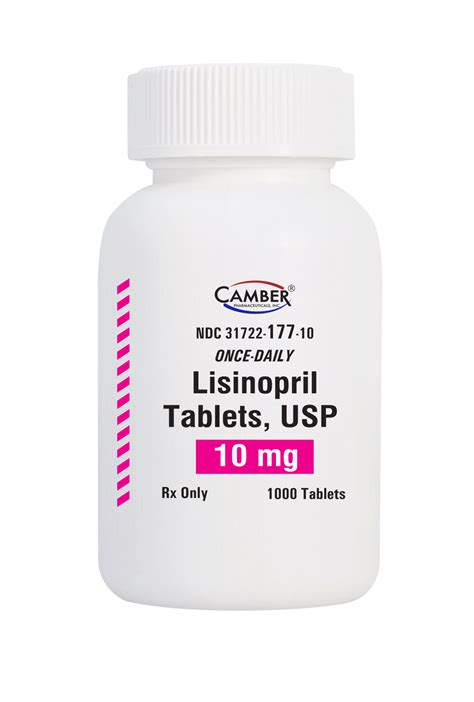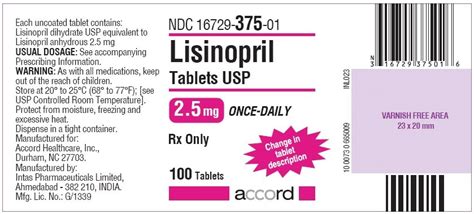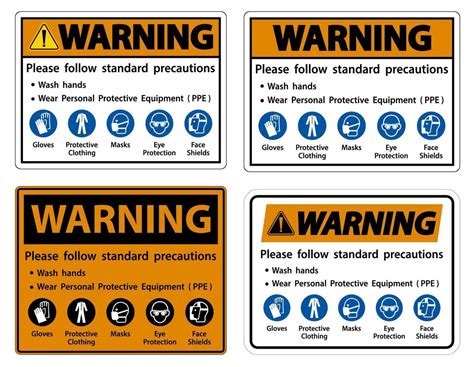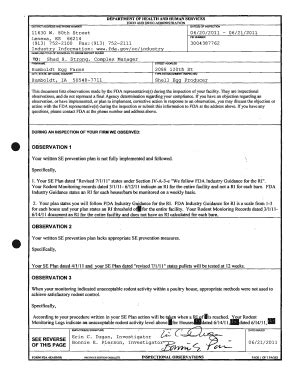Intro
Lisinopril 10mg tablets treat hypertension and heart failure, lowering blood pressure and reducing cardiovascular risk with ACE inhibitor therapy, improving overall health.
Lisinopril 10mg tablets are a type of medication known as an angiotensin-converting enzyme (ACE) inhibitor, which is commonly used to treat high blood pressure and heart failure. High blood pressure, also known as hypertension, can lead to serious health problems if left untreated, including heart attack, stroke, and kidney disease. Lisinopril works by relaxing blood vessels, making it easier for the heart to pump blood and reducing the amount of work the heart has to do. This can help to lower blood pressure and reduce the risk of these serious health problems.
The importance of managing high blood pressure cannot be overstated. According to the American Heart Association, high blood pressure affects nearly 1 in 3 adults in the United States, and it is a major risk factor for heart disease and stroke. By taking medications like lisinopril 10mg tablets as directed, individuals with high blood pressure can help to lower their blood pressure and reduce their risk of these serious health problems. In addition to its use in treating high blood pressure, lisinopril 10mg tablets are also used to treat heart failure, a condition in which the heart is unable to pump enough blood to meet the body's needs.
Lisinopril 10mg tablets are typically taken once a day, with or without food. It is essential to take the medication exactly as directed by a healthcare provider, as taking too much or too little of the medication can affect its effectiveness and increase the risk of side effects. Individuals taking lisinopril 10mg tablets should also be aware of potential side effects, such as dizziness, headache, and cough. While these side effects are usually mild and temporary, they can be a sign of a more serious problem in some cases.
What is Lisinopril 10mg Tablets

How Does Lisinopril 10mg Tablets Work
Lisinopril 10mg tablets work by inhibiting the conversion of angiotensin I to angiotensin II, a potent vasoconstrictor. This leads to a decrease in blood pressure and a reduction in the amount of fluid in the blood vessels. As a result, the heart does not have to work as hard to pump blood, which can help to reduce the risk of heart failure and other serious health problems.Benefits of Lisinopril 10mg Tablets

Side Effects of Lisinopril 10mg Tablets
While lisinopril 10mg tablets are generally well-tolerated, they can cause side effects in some individuals. Some of the most common side effects include: * Dizziness * Headache * Cough * Fatigue * Nausea and vomiting * Diarrhea * RashPrecautions and Warnings

Interactions with Other Medications
Lisinopril 10mg tablets can interact with other medications, including: * Diuretics: Taking diuretics with lisinopril 10mg tablets can increase the risk of low blood pressure. * Potassium supplements: Taking potassium supplements with lisinopril 10mg tablets can increase the risk of high potassium levels. * Nonsteroidal anti-inflammatory drugs (NSAIDs): Taking NSAIDs with lisinopril 10mg tablets can increase the risk of kidney damage.Dosage and Administration

Overdose
In the event of an overdose, individuals should seek medical attention immediately. Symptoms of an overdose can include: * Low blood pressure * Dizziness * Fainting * Confusion * SeizuresConclusion and Final Thoughts

We invite you to share your thoughts and experiences with lisinopril 10mg tablets in the comments below. If you have any questions or concerns, please do not hesitate to ask. Additionally, if you found this article informative and helpful, please share it with others who may benefit from the information.
What is the usual starting dose of lisinopril 10mg tablets for high blood pressure?
+The usual starting dose is 10mg once a day, which can be increased to 20-40mg once a day as needed.
Can I take lisinopril 10mg tablets during pregnancy or breastfeeding?
+No, lisinopril 10mg tablets should not be taken during pregnancy or breastfeeding, as they can cause harm to the fetus or baby.
What are the potential side effects of lisinopril 10mg tablets?
+Some of the most common side effects include dizziness, headache, cough, fatigue, nausea and vomiting, diarrhea, and rash.
